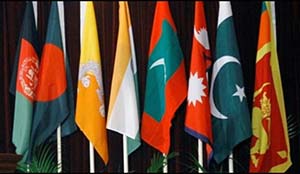Washington, Oct 13: SAARC has not lived up to its potential, a top White House official said and "regretted" that the regional summit has to be postponed this year after most of the member countries pulled out of it.
"It is regrettable that the SAARC meeting could not be held this year," Peter Lavoy, Senior Director for South Asia at the National Security Council (NSC), White House told a Washington audience in response to a question at the Center for Strategic and International Studies (CSIS).
"In fact SAARC has not lived up to the potential of other regional groupings like ASEAN. That grouping has countries with similar frictions, similar boarder disputes, ethnic concerns and other problems at the time ASEAN was created," he said.
But SAARC has not been able to provide that platform, which has negative effect on the relationships, Lavoy said when asked about America's relationship between India and Pakistan.
"I think, the bottom line is we do not try to balance this relationship," he said, adding that the Obama Administration has been focused on deepening and broadening its relationship with India.
"We wish that were to be the case with Pakistan. We work very hard with Pakistan to turn that into a productive mutually beneficial relationship. I am sure the next administration would continue with these tendencies," Lavoy said.
The US he said already has a very vibrant trilateral co-operation with India and Japan.
"There is no reason why other countries can't join in on this partnership," he said.Following the attack in Uri in which 19 soldiers were killed, India decided not to participate in the SAARC Summit that was scheduled to be held in Islamabad in November.
Following India, several other South Asian countries – Bangladesh, Bhutan, Afghanistan and Sri Lanka – pulled out of the summit. This forced Pakistan to postpone the SAARC Summit for an indefinite period.






Comments
Add new comment